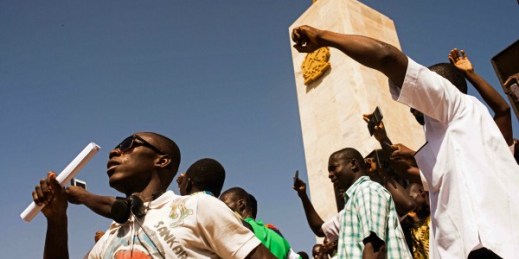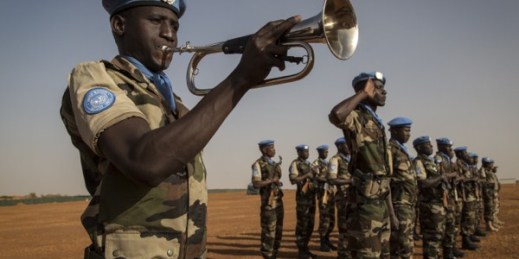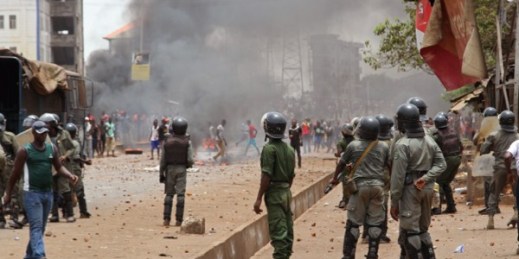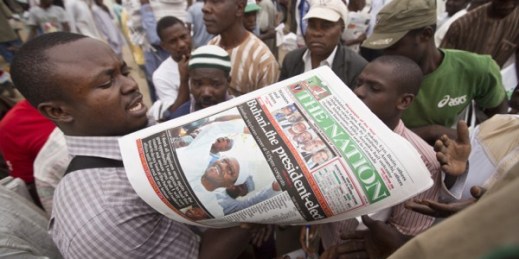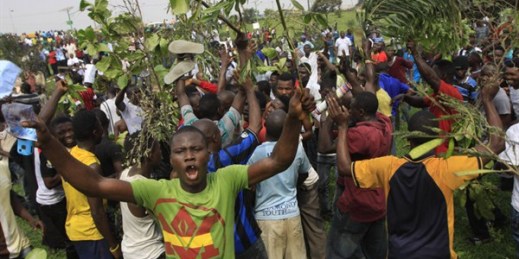
I carry a plastic chair over to sit with Pastor Samuel Tewogbola outside his house in the southern Nigerian town of Igarra. The family goat wanders past us, nosing the earth. It’s November 2014, and I am doing preliminary research for a future book. Tewogbola is a fire-and-brimstone preacher—43 years in a hard-line Pentecostal church. When I arrived with my friend Esther, his daughter, he made us all kneel in his doorway while he intoned thanks to Jesus for our safe journey. We’re philosophizing, talking about what makes up good human character, and about money—how money is used to buy […]

